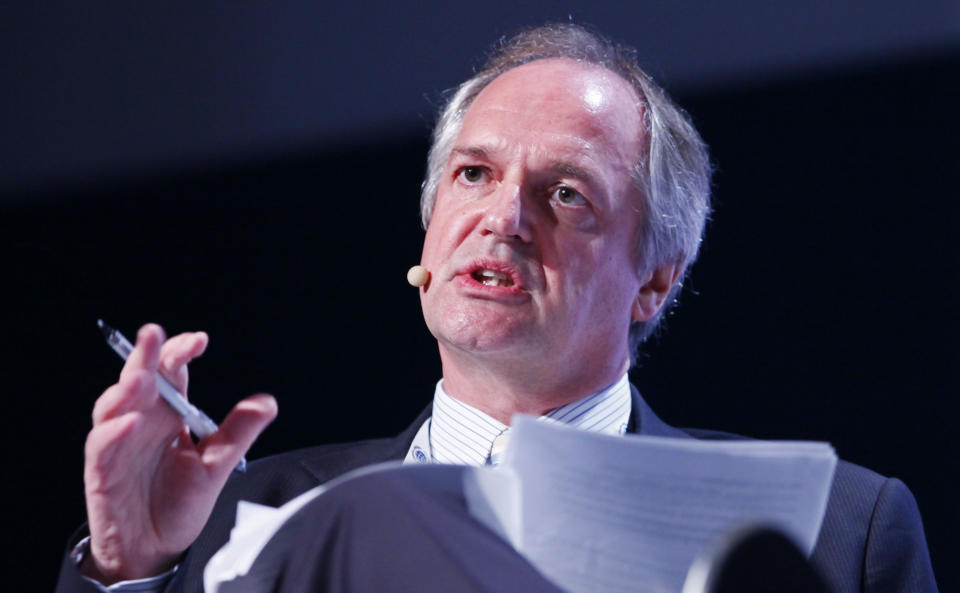Diversity is a $1.5 trillion economic opportunity in the US: former Unilever CEO
Long-time Unilever CEO Paul Polman says it’s time for executives to stop paying lip service to improving diversity inside their organizations. Strong action is needed for the greater good.
Polman was the CEO of Unilever for a decade, leaving in early 2019 to co-found climate change and diversity consultancy Imagine. Over his tenure, Polman was a fierce proponent of conscious capitalism and seen as one of the most progressive CEOs in global business. Polman’s model is one that says a company exists for more than pleasing shareholders with big, fat profits. Instead, businesses exist to support a range of constituents: workers, the communities in which they do business and ultimately shareholders.

Do right for all parties, the profits will be there and so will an upward sloping stock price. Although Wall Street often gave Polman guff for his approach (which denounces Wall Street’s thirst for profits at all costs), it paid off handsomely for investors. The stock had a total return of nearly 300% under Polman’s watch and Unilever is still viewed as one of the better corporate citizens on the block.
Polman appeared on Yahoo Finance’s The First Trade this week to discuss diversity. Here is an edited and condensed version of Polman’s views on diversity.
“I think the biggest surprise for Black people, especially in the U.S., is not perhaps the fact that so many white people started to all of a sudden speak out and say we need to do something about it [diversity]. But it’s that we have seen governments starting to look at where they spent their money and are looking to put different policies in place. We have seen the universities or academic communities look at more inclusion in the educational institutions. We see the local governments looking at their monuments and other things.
Not surprisingly we have seen hundreds and hundreds of CEOs calling out for action and setting the bar high.
Now here is the challenge though. It’s easy to sign a statement or call for action. We have been there before in the history of mankind. But our real numbers fall terribly short of where we need to be. This is a $1.5 trillion opportunity in the U.S. by giving equal opportunities irrespective fo skin color. And the business community is probably keen to embrace that.
So I’m happy to see that more and more are starting to take action.
First of all, on the topic of advocacy. The judicial system needs to change. No system can work when 800,000 policemen have immunity of prosecution and basically can do what they want. Many are good, but there are clearly some rotten apples in the system and impunity is not a system we want. Like anything, you need checks and balances.
Then for companies themselves, they need to step up to the plate. I don’t want to be on the board of anyone if there isn’t a representation of the black community on there. We need to look at recruiting for equal measures. Unilever had three black people on my board during my tenure. They were probably some of the best board members we had. There is no reason other companies cannot do the same thing. So integrating, recruiting and development are important.
Then businesses could look at their values. Businesses need to spend behind Black businesses. They need to support Black banks. They need to buy Black businesses. If they don’t do that, we’re never going to solve this issue. It’s an important point.”
Here’s what Polman had to say on the growing number of companies pulling their advertising off Facebook.
Brian Sozzi is an editor-at-large and co-anchor of The First Trade at Yahoo Finance. Follow Sozzi on Twitter @BrianSozzi and on LinkedIn.
Coca-Cola CEO: here’s what our business looks like right now
Dropbox co-founder: the future of work will be all about this
Follow Yahoo Finance on Twitter, Facebook, Instagram, Flipboard, SmartNews, LinkedIn, YouTube, and reddit.

 Yahoo Finance
Yahoo Finance 